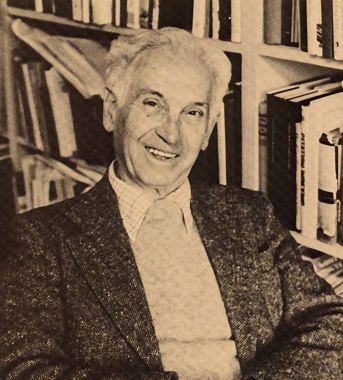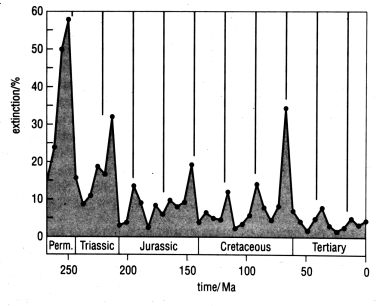

After Skelton: Evolution (1993)
Only in the thirties of the last century the geneticists, the paleontologists and the field biologists found each other in the so-called Modern synthesis. In this version of the evolution theory natural selection was accepted as the driving force. Founder was Julian Huxley, the grandson of Thomas Huxley, 'Darwin's Buldog'.
After the Second World War, Ernst Mayer (photo) gave important contributions to what is called the Neo-Darwinism.
Know more?
The
Modern Synthesis
The most extreme extinction was at the end of the Permian, about 250 million years ago. During this period 95% of all plants and animals became extinct . It took as many as 10 million years before the biodiversity had reached the old level.
Raup stated that the great extinctions occur with interval of 26 million of years . This is illustrated in the diagram on top. But nowadays this is believed not to be true.
Know more?
The
role of extinction in evolution